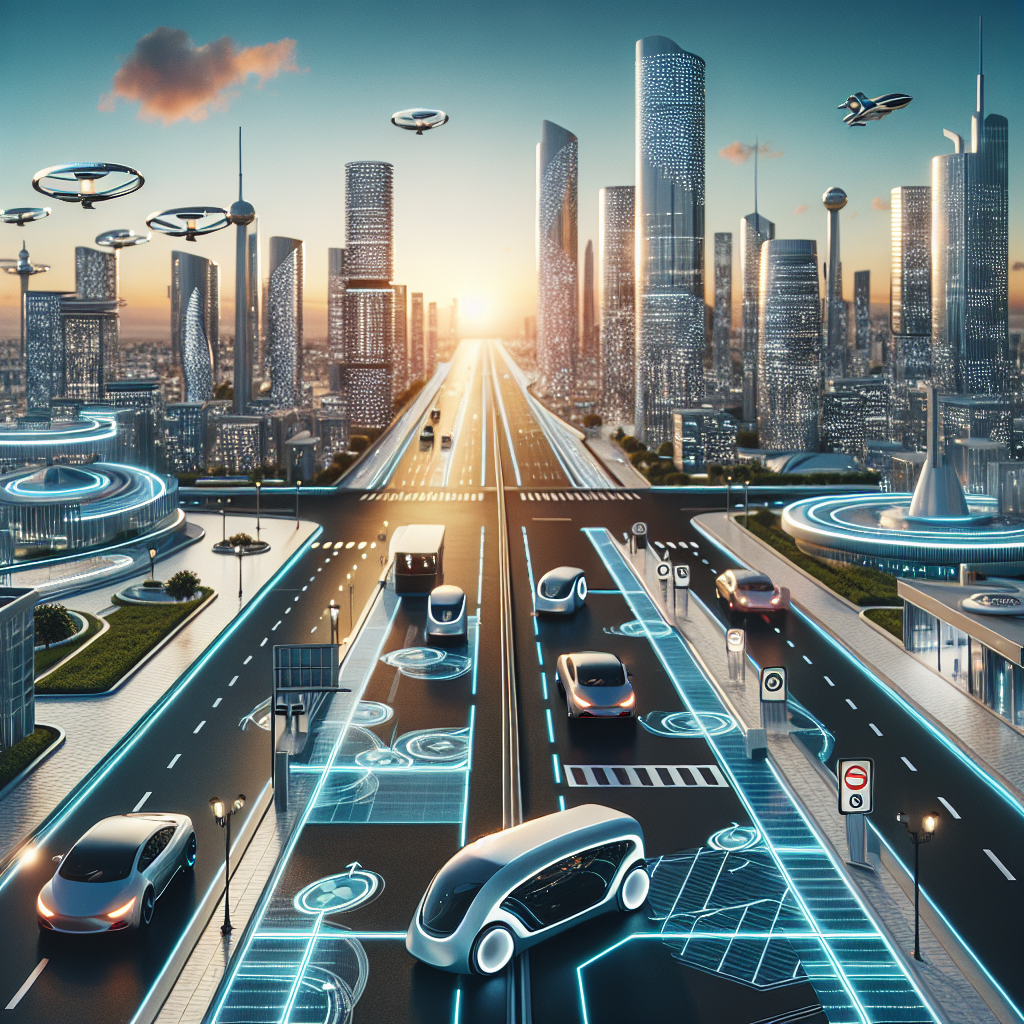The Future of AI in Transportation
Artificial Intelligence (AI) has the potential to revolutionize the way we think about transportation. From self-driving cars to smart traffic management systems, AI is set to play a key role in shaping the future of transportation. In this article, we will explore the various ways in which AI is transforming the transportation industry and discuss some of the opportunities and challenges that lie ahead.
Self-Driving Cars
One of the most exciting developments in transportation is the rise of self-driving cars. These autonomous vehicles use AI algorithms to navigate roads, make decisions, and respond to changing traffic conditions. Companies like Tesla, Waymo, and Uber are already testing self-driving cars on public roads, and many experts believe that fully autonomous vehicles will become a common sight in the near future.
Self-driving cars have the potential to revolutionize the way we think about transportation. They could reduce accidents, ease traffic congestion, and make it easier for people to get around without the need for a driver’s license. In addition, self-driving cars could open up new opportunities for mobility, allowing elderly or disabled individuals to travel independently.
However, there are still many challenges that need to be overcome before self-driving cars become a reality. Safety concerns, regulatory issues, and public acceptance are just a few of the obstacles that need to be addressed. In addition, there are ethical questions surrounding the use of AI in transportation, such as who will be held responsible in the event of an accident.
Smart Traffic Management Systems
Another area where AI is making a big impact is in traffic management. Cities around the world are using AI algorithms to optimize traffic flow, reduce congestion, and improve air quality. Smart traffic management systems use real-time data from sensors, cameras, and GPS devices to monitor traffic patterns and adjust signal timings accordingly.
By using AI to predict traffic patterns and optimize signal timings, cities can reduce travel times, lower emissions, and improve the overall efficiency of their transportation networks. In addition, smart traffic management systems can help emergency vehicles respond more quickly to incidents, improving public safety.
However, implementing smart traffic management systems can be challenging. Cities need to invest in infrastructure, sensors, and data analytics capabilities in order to make these systems work effectively. In addition, there are privacy concerns surrounding the collection and use of data from sensors and cameras.
Delivery Drones and Autonomous Trucks
AI is also being used to revolutionize the way goods are transported. Delivery drones and autonomous trucks are becoming increasingly popular as companies look for ways to streamline their logistics operations. For example, Amazon is testing delivery drones that can deliver packages to customers in under 30 minutes, while companies like Tesla and Embark are developing autonomous trucks that can transport goods across long distances.
By using AI algorithms to plan routes, optimize deliveries, and navigate obstacles, delivery drones and autonomous trucks can help companies reduce costs, improve efficiency, and reduce their carbon footprint. In addition, these technologies have the potential to revolutionize last-mile delivery, making it faster and more convenient for customers to receive their packages.
However, there are still many challenges that need to be overcome before delivery drones and autonomous trucks become mainstream. Regulatory issues, safety concerns, and public acceptance are just a few of the obstacles that need to be addressed. In addition, there are questions surrounding the impact of these technologies on jobs in the transportation industry.
Opportunities and Challenges
While the future of AI in transportation holds great promise, there are still many opportunities and challenges that lie ahead. On the one hand, AI has the potential to revolutionize the way we think about transportation, making it safer, more efficient, and more convenient. On the other hand, there are still many obstacles that need to be overcome before these technologies can become a reality.
One of the biggest challenges facing the transportation industry is regulatory issues. Governments around the world are still grappling with how to regulate self-driving cars, delivery drones, and other AI-powered technologies. In addition, there are safety concerns surrounding the use of AI in transportation, as accidents involving autonomous vehicles have raised questions about their reliability and effectiveness.
Another challenge facing the transportation industry is public acceptance. While many people are excited about the potential of AI in transportation, there are also concerns about privacy, security, and job displacement. In order for these technologies to become mainstream, companies and governments will need to address these concerns and build trust with the public.
Despite these challenges, the future of AI in transportation looks bright. With continued advancements in AI algorithms, sensors, and data analytics capabilities, we can expect to see even greater innovations in the years to come. From self-driving cars to smart traffic management systems, AI is set to transform the way we think about transportation and create a more efficient, sustainable, and connected world.
FAQs
Q: Will self-driving cars become a common sight in the near future?
A: Many experts believe that self-driving cars will become mainstream in the next decade. Companies like Tesla, Waymo, and Uber are already testing autonomous vehicles on public roads, and the technology is rapidly advancing.
Q: What are some of the challenges facing the implementation of self-driving cars?
A: Safety concerns, regulatory issues, and public acceptance are just a few of the obstacles that need to be overcome before self-driving cars become a reality. In addition, there are ethical questions surrounding the use of AI in transportation.
Q: How will AI impact jobs in the transportation industry?
A: While AI has the potential to streamline operations and reduce costs, there are concerns about the impact of these technologies on jobs in the transportation industry. Companies will need to find ways to retrain and reskill workers in order to adapt to these changes.

